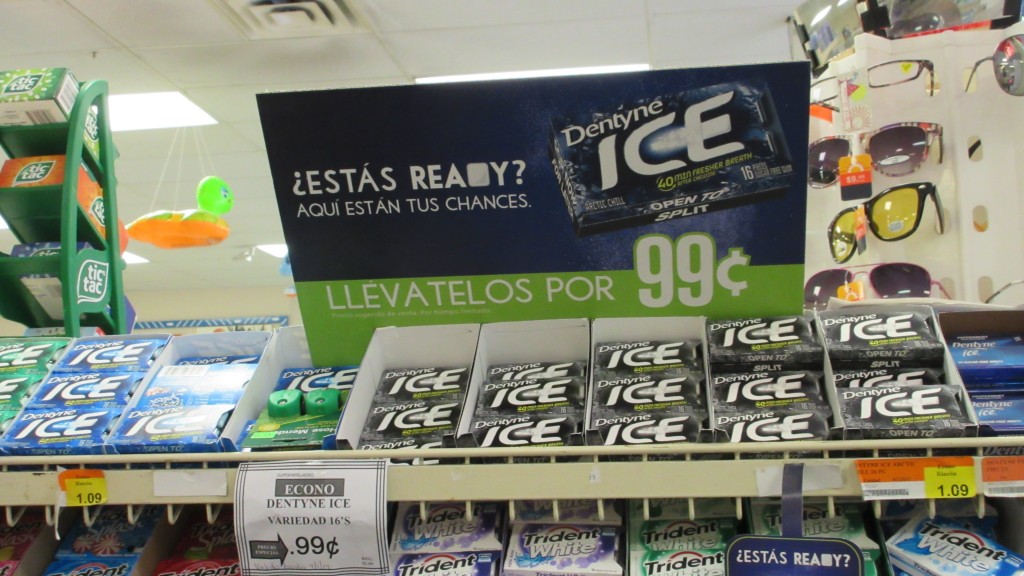I daily continue my education in the Boricua (Puerto Rican Spanish) language. (For my first post on Learning Puerto Rican, go here.) I have been trying to write down and keep track of some of the new words and phrases I often hear. Here are some of them along with the definition as I understand them to be. Puerto Rican friends, please add on to these/correct me as needed.
Chinchorreo– Barhopping (noun), Chinchorreando- barhopping (gerund verb). Going from little hole-in-the-wall bar on the side of the road to the next one, sometimes by horse
Chavo/Peso– Puerto Rico uses US dollars but that doesn’t mean that is what a dollar is called. One dollar is often un peso and money in general is often referred to as chavo. Sort of like “dough” “bread” or “bucks” as slang for money in English
Bregar– I had never heard this word before in Spanish, but perhaps it is used elsewhere. What I understand it to mean is “to deal with” something or “to be versatile in” something.
Coger -In Mexico this was a word meaning “to have a sexual encounter” (vulgarly) and so I was careful with this one. But here it simply means “to pick up” or “take”
Parranda – Another word for party. Also Pari a Spanglish word for party.
Pana– Literally breadfruit but in typical use it means “friend/pal”
Pelao -“Broke” as in low on money -literally pelado means “skinned” and of course in Puerto Rican pronunciation you take out the d in any word that ends with “ado”
Brutal -In English “brutal” means very devastatingly violent but in Spanish it means “really awesome.” Sort of how bad meant good for a long time in the 80s and 90s.
Bruto -A brute, a beast, an idiot
Caco – Mostly I have just heard people who don’t like reggaeton call people who listen to it cacos. Basically the word means “sucky” I think.
Chévere – The coolest word for “Cool” I have heard.
More Spanglish: Parkin, Buildin, Ready, etc -Spanglish is everywhere. If you don’t know the word in Spanish, try the English word with a Spanish accent. You may be surprised how often it works!

Spanglish -Spanish and English mixed in a formal advertisement

I see many more of these posts in your future! BTW: Money is “chavos” (plural), although the s is often aspired. “Chavo” (singular) means one cent. Proper way is to say “centavo(s)”, but chavo(s) is widely used. Another word used for penny is “perra” o “perrita”. (“Pagué con un peso y me devolvieron tres chavos/perritas”.) A nickel is “un vellón”; a dime is a “un vellón de a diez”; a quarter is “una peseta”; 50 cents is “medio peso”. Another funny thing I’ve heard is “un monstruo”, which literally means a monster, but is used to describe an imposingly beautiful or sexy woman! “Batatas” (yams/sweet potatoes) refers to a woman’s legs! — Fran
This is all great and accurate, as usual. 🙂
With regards to currency we also use Peseta to refer to quarters. Spanish influence is still felt on the island. Chavos is money in general but it can also mean pennies, especially if you say “chavitos prietos”.
Parrandas were traditionally Christmas drive-by parties but nowadays they can refer to any party. The word is mostly used in the “Nos vamos de parranda!” form.
If you like the word caco you might also like the word yal. Urbandictionary is good with both of them. Neither definition is safe for work. Caco can also mean low life or criminal. I don’t know how we got it but if you search for “Chespirito los caquitos” on youtube you’ll find one of the potential sources.
What I find the most interesting about Puerto Rican Spanish is that it easily incorporates English words into the language by applying Spanish language rules to them. For example, take the idiom “to hang out” and the word “party” that you mentioned. We use them like this:
“Yo jangueo. Tu jangueas. El janguea. Nosotros jangueamos. Ellos janguean. Vamos a janguear. Vamos pa’l jangueo.”
“Yo pariseo. Tu pariseas. El parisea. Nosotros pariseamos. Ellos parisean. Vamos a parisear. Vamos pa’l pari.”
I still use the words “print” and “scan” bastardized into Spanish instead of the proper Spanish words “imprimir” and… whatever the other one translates to. I use them in professional settings and they’re not looked down on so I guess that Spanglish is Kosher just about everywhere.
Nice list! The Spanglish here never fails to crack me up.
Also, the word “chinchorro” is also used as a noun meaning mountain bar or small hole-in-the-wall bar. For example, La Sombra de Ito is a chinchorro. 🙂
It is so great to see “janger” to hang out. I have heard ‘ Janguez ‘. this site is usr ful for me.